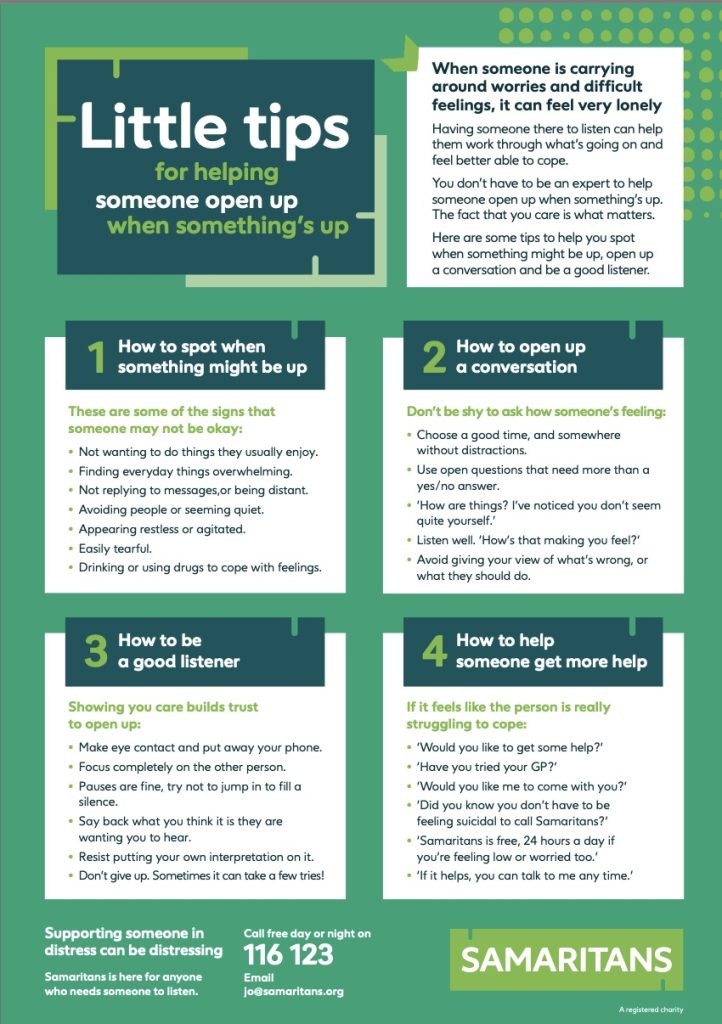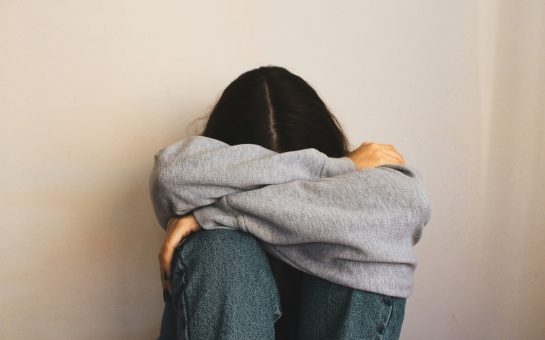A mental health charity is seeking to dispel potentially dangerous myths around what has come to be known as Blue Monday.
The theory goes that the third Monday in January is the time of year when everyone is cold, less well off after the holidays, yearning for sunnier days, and riddled with guilt that new year’s resolutions have fallen by the wayside.
But rather than look upon Blue Monday as the most depressing day of the year, as most people often think it is, Samaritans are on a mission to change perceptions and turn it into Brew Monday.
Director of branch operations Shilpa Shah said: “Feeling low isn’t just something that happens on a random Monday.
“At Samaritans we want to end the myth once and for all and encourage people who are struggling to reach out, rather than just putting their feelings down to winter blues.”
The potential dangers of the Blue Monday myth
Coined by psychologist Dr Cliff Arnall, the concept was first introduced in 2004 based on an arbitrary equation utilising factors like weather, debt, motivation and time since the holidays.
Sky Travel then adopted the term in 2005 in a bid to encourage people to book a summer getaway.
In general, expecting one specific day to be especially bad for no apparent reason may trivialise mental health problems like depression, anxiety and the rollercoaster of life.
It could set up unrealistic expectations of miraculously feeling better on the third Tuesday of the year.
But what if you feel even worse the next day?
Shah said: “At Samaritan’s, we know there is no such thing as Blue Monday.
“We are responding to a call for help every ten seconds, every day of the year.
“We want to get rid of that myth that there is one day of the year, which is really bad for people, because that can be any day, for anybody.”
That being said, there is one potential benefit of the Blue Monday myth.
It may bring more attention to why many people struggle to get through January, with the cold weather, shorter days and time for self-reflection.
Shah said: “What we do know is that the winter months, can affect how someone may be feeling.”
The arrival of the new year can force people to look at their life more closely, and all the things they are yet to achieve.
That’s why people tend to make resolutions on New Year’s Day, but unfortunately, for many, these resolutions fall by the wayside by 17 January, also known as Quitters Day.
Samaritans advice is for people to try not to dwell on what they haven’t achieved, but turn their focus into incorporating smaller, realistic goals into your pre-existing routine.
Shah said: “Personally, I don’t make New Years resolutions.
“I tend to make goals of what I would like to achieve in the year, and what I would like to get out of it.
“I think we sometimes put too much pressure on it, that if we don’t achieve anything in January then that’s the whole year ruined.
“But actually you can start a new resolution whenever you want.
“So take ownership of it and just say I’m going to start tomorrow.”
How to combat the winter blues

Although there is no scientific backing to affirm Blue Monday as the most depressing day of the year, Samaritans is placing emphasis on using this day to check in with family and friends, over a cup of tea, and reconnect.
Samaritans are also encouraging people to prioritise self-care and well-being over the winter months – regardless of whether or not Blue Monday feels ‘real’.
Shah said: “We want people to have a cuppa, but more importantly, it’s about knowing that you can talk to friends, family and loved ones about how you’re feeling.
“It’s so important to remember that you’re not alone.
“A lot of people spend time filling up other peoples cups, and not their own.
“Remember to take that time out to look after yourself and your own mental health”
Anyone seeking support can call Samaritans 24 hours a day, seven days a week, 365 days a year on 116 123, or email jo@samaritains.org
Feature image credit: Marcus Dall Col, Unsplash
Image credit: Samaritans





